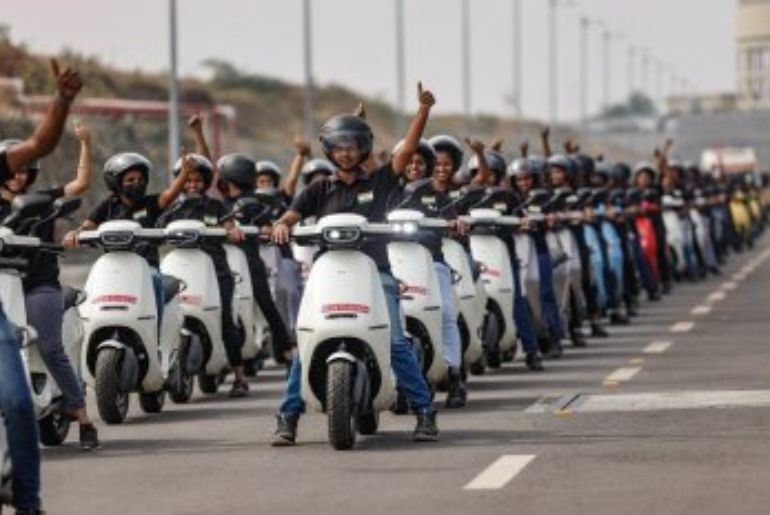Mumbai’s electric bike-taxi sector has seen a surprisingly slow start, with only 100 e-bike taxis registered in the city over the last two months, even as major mobility players such as Ola, Uber, and Rapido have received provisional licenses under the newly introduced Mumbai Bike Taxi Rules 2025.
Slow Uptake Despite Licenses Issued to Major Aggregators
According to data from the Regional Transport Office (RTO), out of the limited registrations recorded so far, 50 vehicles each have been registered under Rapido and Uber at the Wadala RTO in September. While the State Transport Authority (STA) has granted provisional permits to all three companies, the actual deployment of e-bike taxis on the ground remains limited.
Industry observers note that the registration numbers are far below expectations, considering the huge potential demand for affordable last-mile mobility solutions in Mumbai.
BGauss Scooters Dominate Early Registrations
All 100 registered bike taxis are BGauss electric scooters, making them the only two-wheelers currently registered under the transport category for bike-taxi operations. With their compact size and electric drivetrain, these scooters are positioned to help Mumbai reduce emissions and ease traffic congestion.
Under the new rules, electric bike taxis must follow specific regulatory requirements, including:
-
A yellow body colour for easy identification
-
A one-foot-high safety cushion partition between rider and passenger
-
Yellow number plates with black text (transport category)
These measures aim to enhance passenger safety and bring standardization to the growing bike-taxi ecosystem.
Permanent License Applications Needed Within One Month
The three ride-hailing platforms—Ola, Uber, and Rapido—have been directed to apply for permanent licenses within one month to comply fully with the Maharashtra Bike Taxi Rules. The state government aims to formalize operations and bring stricter oversight to ensure safety, reliability, and consumer protection.
Fare Structure Set for Electric Bike Taxis
The fare for Mumbai’s electric bike taxis has been officially structured as follows:
-
₹15 for the first 1.5 km
-
₹10.27 per km thereafter
This fare model is based on the recommendations of the Khatua Committee, which also regulates taxi and autorickshaw fares. The pricing framework is expected to be reviewed after one year to ensure fair competition and affordability.
An Important Step Toward Greener Urban Mobility
Although initial registrations are limited, experts believe Mumbai’s electric bike-taxi initiative has significant potential to transform last-mile connectivity. As more vehicles get approved and deployed, the service could help reduce traffic congestion, cut emissions, and provide residents with a cost-effective and eco-friendly transport alternative.

